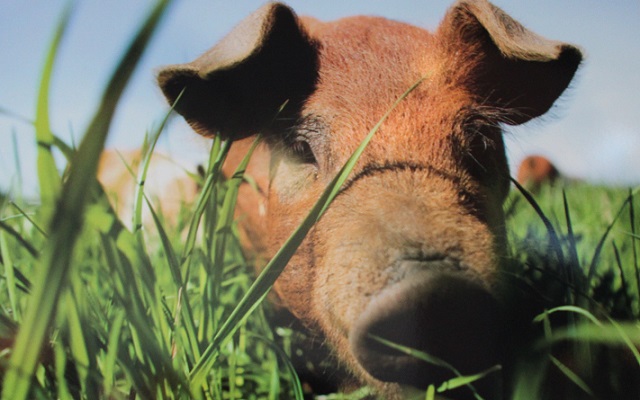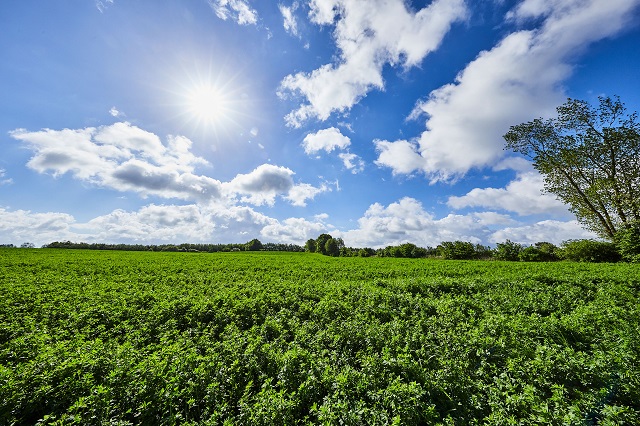AlfaMaxBioraf – Feed your pigs with proteins from lucerne
Want to grow your own protein in a cheap and highly sustainable manner?
Most pork- and chicken producers spend a lot of money on imported soy-based protein. But according to Danish scientist there may be new and more sustainable ways for getting sufficient protein from your own farm in the future.
The key is forage-based protein refined to fit the needs of monogastric animals. Experiments at Aarhus university have demonstrated that up to 50% of the protein that can be extracted from forages is both digestible for pigs and chickens and also represent an optimal amino acid composition. An additional benefit of the concept is that the forage pulp, which is a side product in the refinery process has an even higher forage value than traditionally conserved forage. Protein yield per ha is currently 1.5-2.0 metric tons with prospects of spiking it even further. All types of grass/legume forages can be used but protein quality vary between grasses, clovers, and lucerne.

AlfafMaxBioraf is a new project headed by DLF, which aims at maximizing the amount of digestible protein that can be extracted from different lucerne varieties. It includes researchers from Food-, Animal-, and Engineering Dep from Aarhus University and Plant Science Dep from Copenhagen University. The intention is that optimized parameters shall form the basis for industry-scale production once a positive business case for the farmer can be demonstrated.
There are several ways to optimize process output; 1) Total protein yield may be increased through breeding, 2) Enzymatic treatment of plant extract may be included to release more protein and prevent degradation of proteins through the process, 3) Mechanical extraction of protein juice from plant material may be designed to rupture plant cells more efficiently than today. The consortium has three years to work out an optimized refinery protocol. The project receives financial support from the Ministry of Environment and Food through its GUDP-program.
DLF is also part of a consortium that currently is building an industrial-scale refinery for developing a solid business case on homegrown protein.

